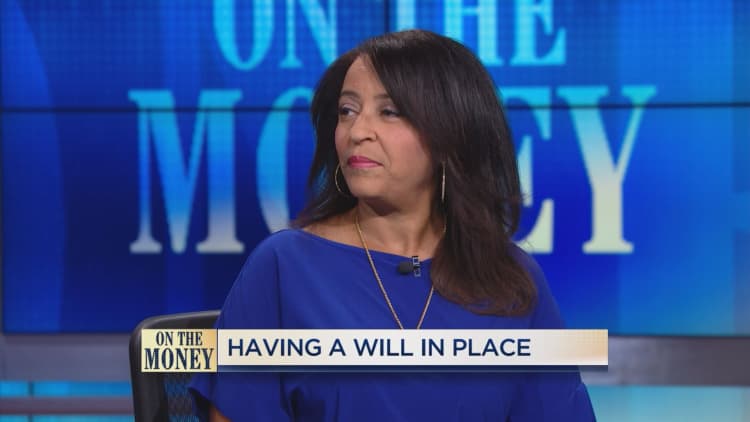[ad_1]
Cj Burton | The Photo Bank | Getty Images
What if a loved one dies without a will? Millions of us are bound to know, as two-thirds of American adults don’t need it, according to a recent Caring.com survey.
If someone dies intestate or intestate, the probate court decides who gets the deceased’s assets, says Vid Ponnapalli, founder of Unique Financial Advisors LLC in Holmdel, New Jersey.
“But when the court distributes the property, it is ultimately up to the survivors to assert their rights over it,” he said.
In the absence of such a situation, the probate court will appoint a coroner for the estate and follow a procedure according to the laws of the state where the deceased resided.
“Generally speaking, this task, as a first step, is to identify the relationship, even blood, of the deceased,” said Ponnapalli. “This process may take a long time, and the burden will be on the children to prove to the court that they are heirs.”
There’s a lot of uncertainty about what the courts will decide without a will, said Andrew Schwartz, vice president of Madison Planning Group in White Plains, New York.

“Equality and fairness are two different things,” he said. “In the courts, it’s the same [numerically].
“You never know how your assets will be divided,” Schwartz says.
He listed other symptoms of not having a will:
- Different breeds, different goals: For example, if a child or grandchild has special needs, the inheritance may exclude their special needs fund.
- Addiction factors: “In this era of the opioid crisis, a generation can blow through a legacy,” Schwartz said. “Without a wheel, how are you going to make sure they’re protected?”
- Long distance: Can family members go to court? Should I hire an attorney or financial advisor from that state or county?
- Finding the deceased’s records: The family must find proof of residence of the deceased and find out what account information, who owns the accounts and how they are held – individual name, business, partnership, retirement, estate, partnership , etc.
- Different state laws: For example, not all states recognize domestic partnerships or common-law partnerships.
Lack of childcare is another sign of poor health, says Mark Dutram, CFP and president of Bayview Private Wealth in Destin, Florida. For example, if the deceased is taking care of young children, the court will choose a guardian to take care of them and a guardian to take care of their property, he said.
At the very least are the emotional aspects that affect the family of the deceased as there is no need, Dutram said.
“Your loved ones are in a state of pain – the last thing you want is a difficult task for them to manage,” he said. “The family has to decide … why [the deceased] it was good.”
“And friends and acquaintances come out of the woodwork for distributions of the deceased’s effects, such as vehicles,” Dutram said.
What to do if your loved one dies
- Save the home: Limit access to the right, change the locks, take video of everything and send the mail.
- Contact the funeral home: Ideally, there should be a family face for this. Get death certificates, but don’t let them fall into the wrong hands. Death certificates can provide valuable access to personal documents and property.
- At home, check out the legal documents: Look for real estate deeds, insurance policies (are there any attached properties?), financial statements, rental accounts, tax returns (to see income and assets). Also find the names of any financial advisors, accountants, lawyers or other professionals who know about the deceased. The more you know, the better.
- Call the county court and ask about the Probate Court: They will explain the process and the forms to fill out. An original death certificate is usually required.
In most cases an individual can manage the work alone, but if there is a problem in the family, there are many assets or some kind of assets (such as a business or intellectual property or), you should engage a trust and estate attorney.
– Sabine Franco, managing attorney at the Ambitious Legacy Firm in Hempstead, New York
[ad_2]
Source link
